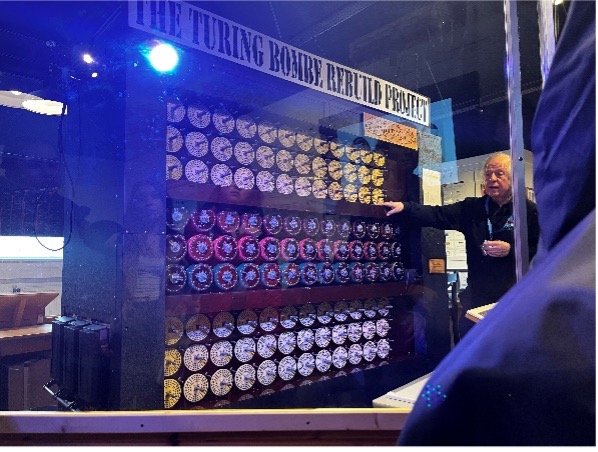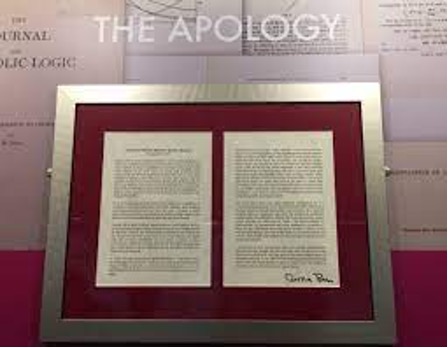Alan Turing: Criminal or War Hero? (Pierre)
By Angie Pierre.

We tend to underestimate the human mind. Humans have had to adapt to situations as quick as they occur, attempting to leave no room for error. The Enigma Machine, a device used by the Germans to transmits coded military messages, confounded the British military. Hiring a genius such as Alan Turing to crack the code saved hundreds of lives during the war.
Learning about the process in which Alan Turing, Joan Clarke, Hugh Alexander, and John Carncross had to undertake to solve the enigma machine showed me that human intelligence is not limited. If people are subjected to pressure and motivation many things can be accomplished. Bletchley Park was a symbol of the limitless capacity of the human mind.
Despite Alan Turing being a hero of World War II, he was labeled a criminal for doing something considered immoral by British society at the time. He was charged with “gross indecency” after having a sexual relationship with a man. This was a crime under the anti-homosexuality laws in the United Kingdom. After being charged and convicted of the crime, he lost his security clearance to Government Communications Headquarters (GCHQ) and was chemically castrated. At Bletchley Park, there was a tribute to him, and a small section called “The Apology” that consisted of an apology issued by the British Government.

The letter pardoned Turing in 2013. One of the things the British Government did as part of the pardon was placing him on the fifty-pound bill. I felt as if the pardon came too late. When reading about the history of his life, I felt as if they took what they could out of him and threw him away. Tributing things to him and placing him on the money seems like a political move to satisfy citizens instead of creating sustainable change. I think if Alan Turing lived to see his pardoning and the expansion of LGBTQIA+ rights, he would want the government to continue expanding these rights.





